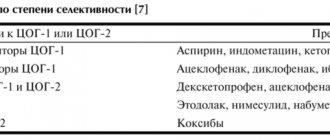Home | About us | Delivery | Advertisers | Login | Registration
Delivery on Sundays and holidays does not work!
- Medicines
- dietary supplementsVitamins
- Categories from A to Z
- Brands from A to Z
- Products from A to Z
- Medical equipment
- beauty
- Child
- Care
- Honey products appointments
- Herbs and herbal teas
- Medical nutrition
- Journey
- Making medicinesStock
Pharmacy online is the best pharmacy in Almaty, delivering medicines to Almaty. An online pharmacy or online pharmacy provides the following types of services: delivery of medicines, medicines to your home. Online pharmacy Almaty or online pharmacy Almaty delivers medicines to your home, as well as home delivery of medicines in Almaty.
my basket
Apteka84.kz is an online pharmacy that offers its customers medicines, medicinal and decorative cosmetics, dietary supplements, vitamins, baby food, intimate products for adults, medical equipment and thousands of other medical and cosmetic products at low prices. All data presented on the Apteka84.kz website is for informational purposes only and is not a substitute for professional medical care. Apteka84.kz strongly recommends that you carefully read the instructions for use contained in each package of medicines and other products. If you currently have any symptoms of the disease, you should seek help from a doctor. You should always tell your doctor or pharmacist about all the medicines you take. If you feel you need further help, please consult your local pharmacist or contact our GP online or by telephone.
© 2022 Pharmacy 84.
Sturgeon, 2 mg/ml, solution for intravenous and intramuscular administration, 4 ml, 10 pcs.
Inside, intramuscularly or intravenously.
Cytostatic therapy
The choice of dosage regimen is determined by the emetogenicity of antitumor therapy.
For adults
The daily dose is usually 8–32 mg.
Recommended regimens: for moderately emetogenic chemotherapy or radiotherapy
- 8 mg of ondansetron 1–2 hours before the start of main therapy, followed by another 8 mg orally after 12 hours;
8 mg intravenously as a slow bolus or intramuscularly, immediately before starting therapy; for highly emetogenic chemotherapy
- the recommended dose is 24 mg simultaneously with dexamethasone orally at a dose of 12 mg 1-2 hours before the start of chemotherapy; 8 mg IV infusion slowly immediately before the start of chemotherapy, and then 2 more IV injections of 8 mg, each given 2-4 hours later; continuous 24-hour infusion of the drug at a dose of 24 mg at a rate of 1 mg/h; 16–32 mg, diluted in 50–100 ml of an appropriate infusion solution, as a 15-minute infusion, immediately before the start of chemotherapy.
To prevent late or prolonged vomiting that occurs after 24 hours, you should continue taking ondansetron at a dose of 8 mg 2 times a day for 5 days.
The effectiveness of ondansetron can be increased by a single intravenous administration of corticosteroids (for example, 20 mg dexamethasone) before starting chemotherapy.
For children
over 2 years of age, the drug is prescribed at a dose of 5 mg/m2 IV, immediately before the start of chemotherapy, followed by 4 mg orally after 12 hours. Treatment is recommended to be continued at a dose of 4 mg 2 times a day orally for 5 days.
Prevention of postoperative nausea and vomiting
For adults
a single dose of 4 mg is administered intramuscularly or intravenously in a stream (slowly) at the beginning of anesthesia or 16 mg is prescribed orally 1 hour before the start of general anesthesia. To relieve nausea and vomiting, it is recommended to administer 4 mg of the drug intramuscularly or slowly intravenously.
Ondansetron can be administered intramuscularly into the same area of the body in a dose not exceeding 4 mg.
For children
To prevent postoperative nausea and vomiting, ondansetron is used exclusively parenterally in a single dose of 0.1 mg/kg (maximum 4 mg) as a slow IV injection before or after anesthesia.
For the treatment of developed postoperative nausea and vomiting in children, slow intravenous administration of a single dose of 0.1 mg/kg (maximum up to 4 mg) is recommended.
There is insufficient experience with the prevention and treatment of postoperative nausea and vomiting in children under 2 years of age.
Special patient groups
Elderly patients.
No dose adjustment is required.
Renal dysfunction.
No adjustment of the dose or frequency of administration of the drug is required.
Liver dysfunction.
In cases of moderate or severe liver dysfunction, the clearance of ondansetron is significantly reduced, while its T1/2 from plasma increases, therefore it is not recommended to prescribe more than 8 mg/day of ondansetron to such patients.
To dilute the injection solution, the following can be used: 0.9% sodium chloride solution; 5% dextrose solution; Ringer's solution; 0.3% potassium chloride solution and 0.9% sodium chloride solution; 0.3% potassium chloride solution and 5% dextrose solution.
Sturgeon price, where to buy
The price of the drug Osetron in ampoules of 2 mg/ml No. 10 10 averages 420 rubles per package. You can buy Osetron or its analogues in most pharmacies in Moscow without difficulty.
- Online pharmacies in RussiaRussia
- Online pharmacies in UkraineUkraine
LuxPharma* special offer
- Sturgeon 4 mg 5 pcs
1850 rub. order - Sturgeon 8mg 5pcs
1980 rub. order
- Osetron (Setronon) tablets 8 mg 10 pcs
2800 rub. order
show more
Pharmacy24
- Sturgeon 8 mg 4 ml N5 solution for injection Dr. Reddy's Laboratories Ltd., India
268 UAH.order
Analogues of Osetron
Level 4 ATX code matches:
Latran
Zofran
Ondansetron
Altfarm , Domegan , Atossa , Zofran , Latran , Lazaran VM , Vero-Ondansetron , , Ondazan , Ondasol , Emetron , Ondantor , Setronon , Emeset .
Interaction
Caution is required when using the drug together with barbiturates, glutethimide , papaverine , griseofulvin , phenylbutazone , rifampicin , carisoprodol ; macrolide antibiotics , oral estrogen-containing contraceptives, erythromycin , omeprazole , metronidazole , ketoconazole , cimetidine , quinine , propranolol , quinidine and other drugs .
Alosetron
Alosetron
(eng.
alosetron
) is a selective antagonist of 5-HT3 serotonin receptors, a drug used in some countries for the treatment of irritable bowel syndrome with diarrhea (IBS-d) in women.
Alosetron is a chemical compound
Chemical name of alosetron: 2,3,4,5-tetrahydro-5-methyll-2-((5-methyl-1H-imidazol-4-yl)methyl)-1H-pyrido(4,3-b)indol-1 - . The empirical formula is C17H18N4O. The molecular weight of alosetron is 294 g/mol.
Alosetron is a medicine
Alosetron is the international nonproprietary name (INN) of the drug. According to the pharmacological index, it belongs to the group “Serotonergic drugs”. According to ATC, alosetron belongs to the section “A03 Drugs for the treatment of functional gastrointestinal disorders” and has the code A03AE01. In Russian-language publications, alosetron is positioned (positioned) as a promising or experimental antispasmodic (Belousova E.A., Minushkin O.N., Elizavetina G.A.), an antidiarrheal agent (Belousova E.A., Zlatkina A.R.), prokinetic ( Bova A.A. et al.) for the treatment of IBS-d, GERD (Bova A.A. et al.) or functional dyspepsia (Starostin B.D.).
History of FDA approvals of alosetron
Alosetron was initially approved by the US Food and Drug Administration (FDA) on February 9, 2000. When first reviewed by the FDA, alosetron was noted to improve symptoms in 10-20% of patients.
Sales of alosetron in pharmacies began in March 2000. On July 17, 2000, the first medical report was received of the death of a 50-year-old woman who had suffered mesenteric ischemia. The report named alosetron as the "primary suspect" in the death. Alosetron was voluntarily withdrawn from the market by GlaxoWellcome on November 28, 2000 due to the occurrence of serious life-threatening gastrointestinal side effects, including 5 deaths and additional bowel surgeries. The FDA noted that it had reports of 49 cases of ischemic colitis and 21 cases of “severe constipation,” ten of the 70 patients had surgery, and 34 people were evaluated in hospitals and discharged without surgery. Until November 17, 2000, pharmacists filled 474,115 prescriptions for alosetron. Severe adverse events were reported resulting in a total of 84 cases of ischemic colitis, 113 serious constipation, 143 hospitalizations and 7 deaths. On June 7, 2002, the FDA announced the reauthorization of Lotronex (alosetron hydrochloride), this time for limited use and for the treatment only of women with severe diarrhea as the predominant symptom of irritable bowel syndrome. This was the first time in history that the FDA approved use in US patients after the drug was withdrawn from the market due to safety concerns.
Trade names of drugs containing the active ingredient alosetron
In Russia, not a single drug with the active substance alosetron is registered.
Currently, the brand of alosetron in the United States is Lotronex, produced by Prometheus Laboratories Inc. (San Diego, California) as 0.5 and 1 mg film-coated tablets (containing 0.562 and 1.124 mg alosetron hydrochloride, respectively, equivalent to 0.5 and 1 mg alosetron).
- Lotronex (alosetron hydrochloride). Tablets. Medication Guide instructions for patients). In English (pdf).
In addition, generics of alosetron are registered in the United States: Amneal Pharmaceuticals and West-Ward Pharmaceuticals Inc.
Both are available as 0.5 and 1 mg tablets under the name Alosetron Hydrochloride. On the website in the literature catalog there is a section “Prokinetics”, containing articles on the use of prokinetics in the treatment of diseases of the gastrointestinal tract.
Use of alosetron in pregnant and breastfeeding women
FDA Fetal Risk Category B (animal studies have not shown any risk of adverse effects on the fetus; there have been no adequate studies in pregnant women). Alosetron is not recommended for breastfeeding. No proper studies have been conducted. It is not known whether alosetron is excreted into human milk (including in animals).
general information
Alosetron is available from US pharmacies strictly by prescription.
Alosetron has contraindications, side effects and application features; consultation with a specialist is necessary
. Back to section
Pharmacodynamics and pharmacokinetics
Pharmacodynamics
A drug with a pronounced antiemetic effect. It is a competitive and highly selective antagonist of 5HT3 receptors ( serotonin receptors located in the central and peripheral nervous system). When taking chemotherapy drugs and radiation therapy serotonin is released from the enterochromaffin cells gastrointestinal mucosa , which causes the gag reflex and a feeling of nausea. The drug selectively blocks the membranes of 5HT3 receptors of peripheral nerves, which are actively involved in this reflex. Thus, the drug relieves nausea and vomiting that appears during chemotherapy and radiotherapy , while there are no significant side extrapyramidal manifestations .
Pharmacokinetics
The drug is quickly absorbed into the gastrointestinal tract , the maximum level of concentration in the blood after intramuscular administration is reached after 1.5 hours. Blood protein binding is about 75%. Biotransformation occurs in the liver by hydrolysis . The drug is excreted mainly in the form of metabolites through the kidneys and intestines.


